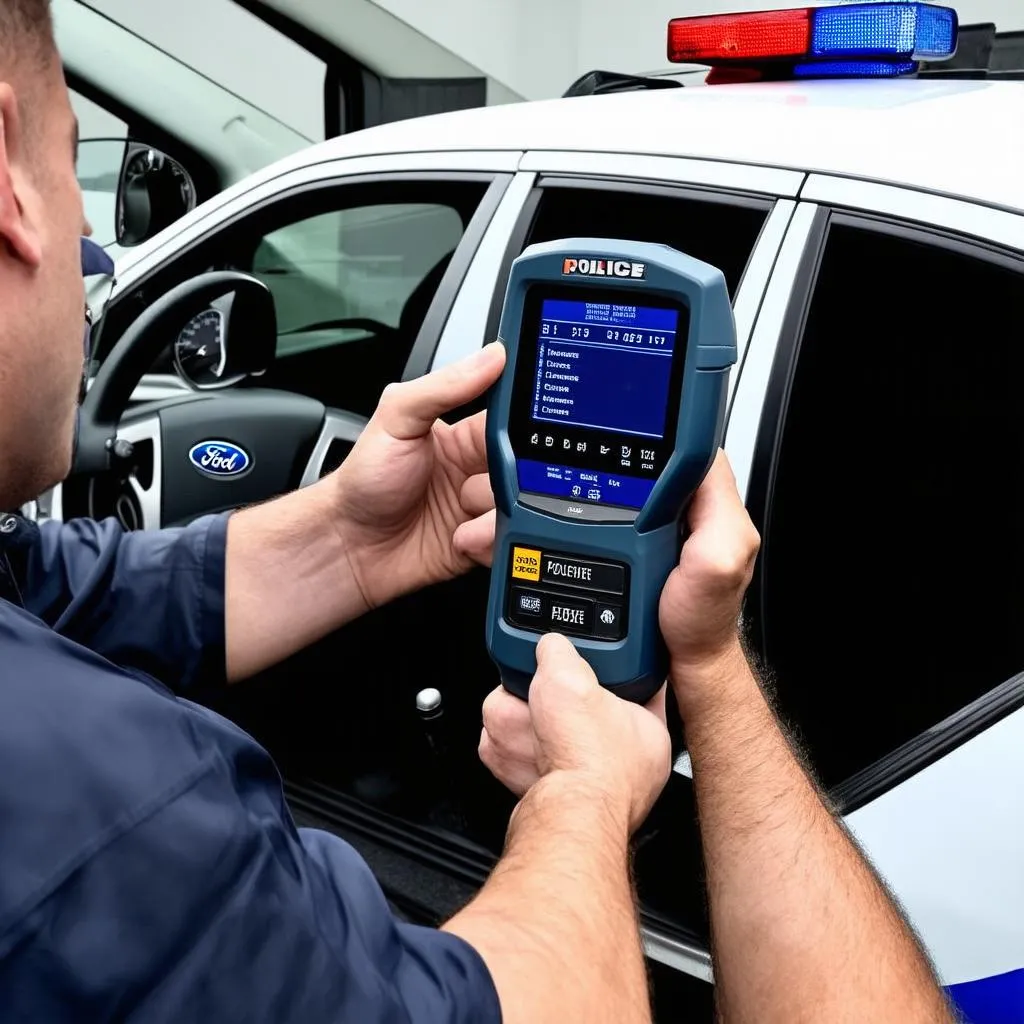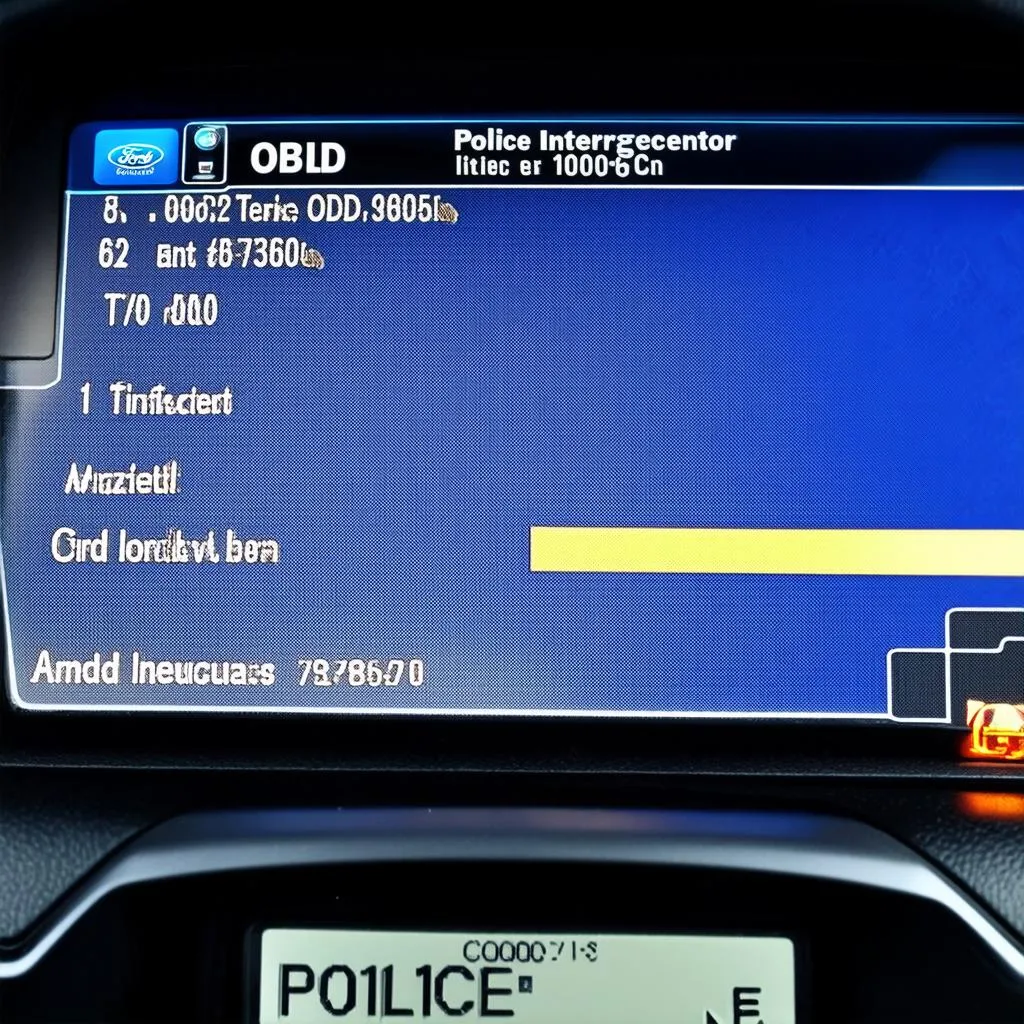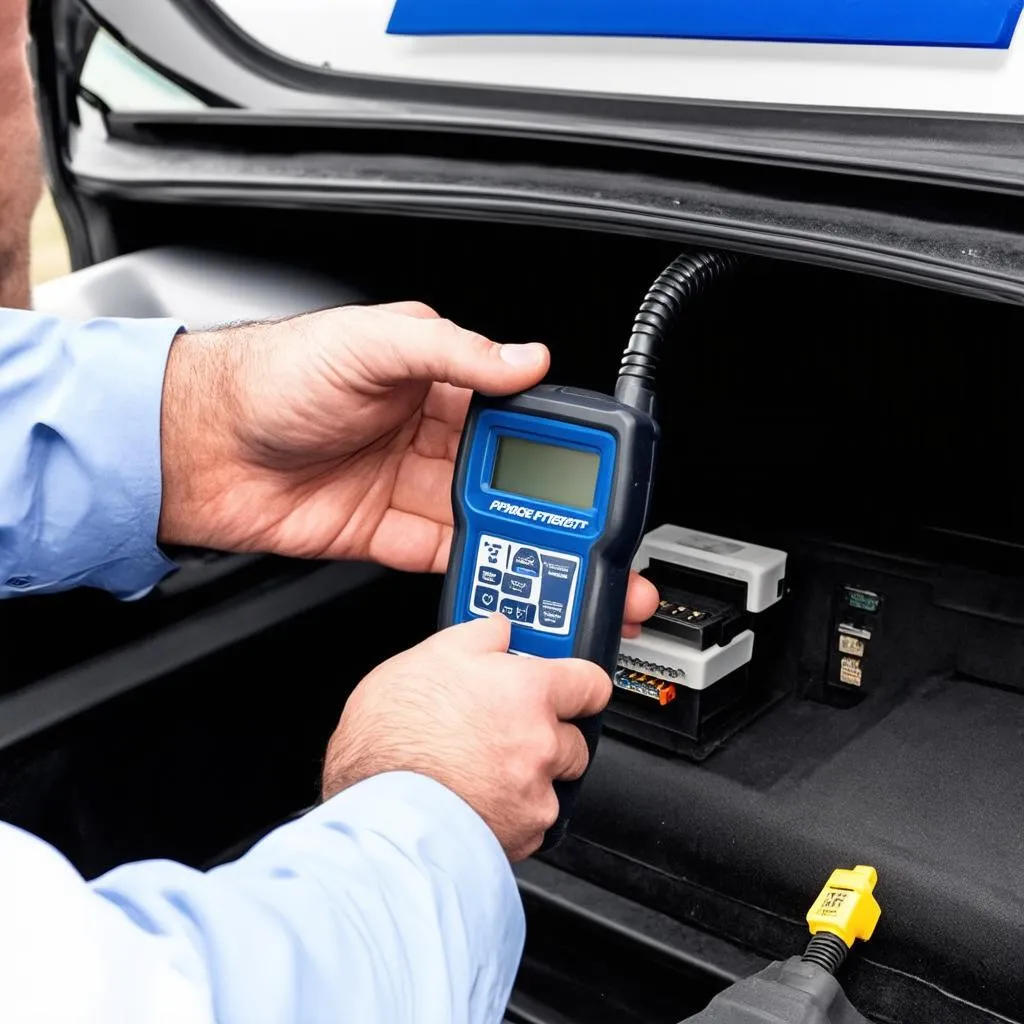Have you ever wondered what makes a Ford Police Interceptor tick? Or maybe you’re curious about its diagnostics capabilities, particularly its OBD and OBD2 systems? You’re not alone! Many car enthusiasts and mechanics are intrigued by the technology behind these powerful vehicles.
What Does “Ford Police Interceptor OBD & OBD2” Mean?
The term “Ford Police Interceptor OBD & OBD2” refers to the On-Board Diagnostics (OBD) system found in these vehicles, specifically the OBD II protocol used in the US and many other countries. Think of it as the car’s built-in “check engine light” that allows you to understand what’s going on under the hood.
Understanding OBD & OBD2
The OBD system is designed to monitor critical vehicle functions, like engine performance, emissions, and transmission. OBD II is the updated version of the OBD system, offering a wider range of data and capabilities.
The Importance of OBD & OBD2 for Ford Police Interceptors
For Ford Police Interceptors, OBD & OBD2 are vital for a few reasons:
- Performance & Efficiency: The data collected by these systems helps technicians monitor the car’s performance and ensure it runs optimally.
- Safety & Reliability: OBD & OBD2 identify potential problems that could affect the vehicle’s safety or reliability, ensuring it’s ready for action.
- Maintenance & Repair: The systems make diagnostics and repairs more efficient by providing detailed information about the car’s health.
The Ford Police Interceptor OBD & OBD2 System Explained
Think of it as a language: The OBD system speaks in codes, which can be deciphered using a diagnostic scanner. This scanner acts as a translator, converting the codes into understandable information about potential issues.
Common OBD Codes & Issues
Here are some common OBD codes and issues you might encounter in a Ford Police Interceptor:
- P0171 – System Too Lean (Bank 1): This code indicates a problem with the fuel/air mixture, possibly due to a faulty fuel injector, a leak in the intake manifold, or a clogged air filter.
- P0300 – Random/Multiple Cylinder Misfire Detected: This code signals a misfire in one or more cylinders, which could be caused by faulty spark plugs, ignition coils, or a problem with the fuel system.
- P0420 – Catalyst System Efficiency Below Threshold (Bank 1): This code points to a problem with the catalytic converter, often caused by a faulty oxygen sensor or a blockage in the exhaust system.
How to Access Ford Police Interceptor OBD & OBD2 Data
Accessing the data from the Ford Police Interceptor’s OBD system is relatively simple:
- Locate the OBD II port: The port is usually located under the dashboard, near the steering column.
- Connect a compatible diagnostic scanner: The scanner will connect to the OBD II port and access the vehicle’s data.
- Interpret the codes: The scanner will display the OBD codes and other relevant data, providing valuable insights into the vehicle’s health.
Pro tip: Some “OBD II readers” are available at local auto parts stores, but for a comprehensive analysis, it’s recommended to use a dedicated dealer-level scanner with extensive capabilities for diagnostics and troubleshooting.
Ford Police Interceptor OBD & OBD2: Frequently Asked Questions (FAQs)
Here are some common questions about Ford Police Interceptor OBD & OBD2 systems:
Q: Can I use a generic OBD II scanner on a Ford Police Interceptor?
A: While some generic scanners might work, dealer-level scanners offer the most comprehensive capabilities, allowing you to access a wider range of data and specialized diagnostic procedures specific to the vehicle’s advanced systems.
Q: Is it difficult to understand the OBD codes?
A: Don’t worry! Most scanners provide clear explanations of the codes, and there are also online resources and manuals available for reference.
Q: Are there any special considerations for OBD & OBD2 in Ford Police Interceptors?
A: Due to their specialized nature and high-performance capabilities, Ford Police Interceptors often have more complex electrical systems that require advanced diagnostics. It’s important to use a scanner compatible with the vehicle’s specific model and year to ensure accurate readings.
Q: Can I reset the OBD codes myself?
A: You can reset the codes, but remember that clearing the codes won’t solve the underlying problem. It’s crucial to address the issue causing the codes to prevent future problems.
Ford Police Interceptor OBD & OBD2: A Look at the Future
As automotive technology continues to advance, OBD & OBD2 systems will become even more integrated into vehicles. For Ford Police Interceptors, this means more detailed data, improved diagnostics, and enhanced safety features.
The Spiritual Significance of the Ford Police Interceptor OBD & OBD2 System
Some believe that the Ford Police Interceptor OBD & OBD2 system represents a connection between technology and the spiritual world, allowing us to understand the “soul” of the vehicle and its connection to the world around it. They see the codes as messages, offering insights into the vehicle’s health and its journey.
While this may seem like a stretch, it’s fascinating to think about the symbiotic relationship between technology and our understanding of the world.
What’s Next?
Exploring the Ford Police Interceptor OBD & OBD2 system can be an enriching experience for both car enthusiasts and professionals. It’s a window into the complexities of modern vehicles and the exciting advancements in automotive technology.
Need help with your Ford Police Interceptor’s OBD system? We have certified technicians specializing in diagnostics and repair. Contact us today for professional assistance!
 Ford Police Interceptor OBD Scanner
Ford Police Interceptor OBD Scanner
 Ford Police Interceptor OBD Codes
Ford Police Interceptor OBD Codes
 Ford Police Interceptor OBD Port
Ford Police Interceptor OBD Port
Don’t forget to leave a comment below and share your thoughts on the Ford Police Interceptor OBD & OBD2 system!